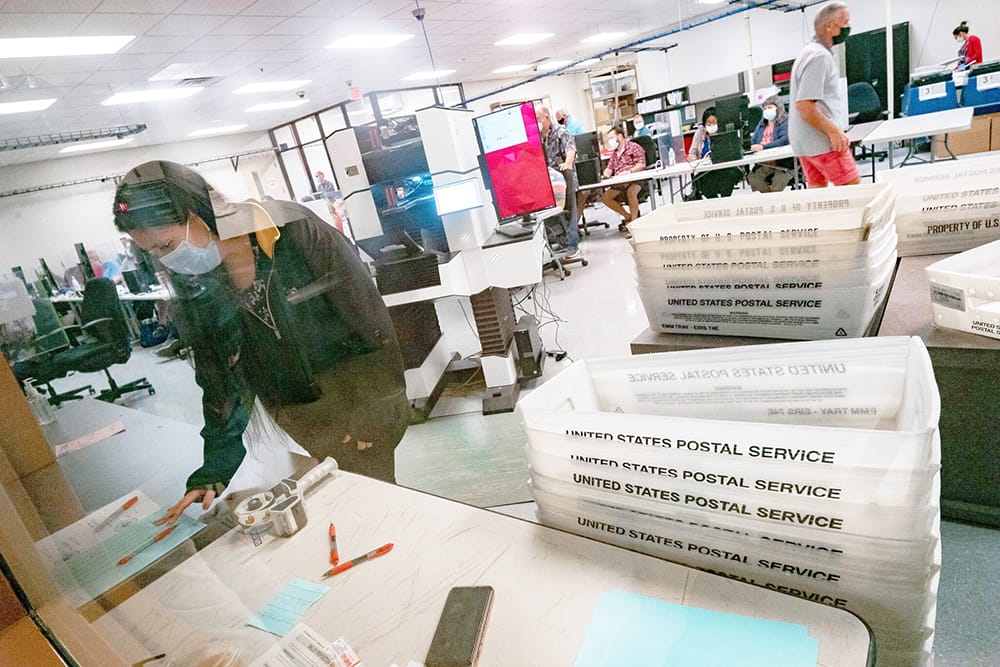The Maricopa County Election Department counts ballots in Phoenix on Nov. 5, 2020. Arizona’s election laws are the subject of a pending Supreme Court decision. Photo by Olivier Touron/AFP via Getty Images | The Conversation This article is republished from The Conversation under a Creative Commons license.
Commentary: By Cornell W. Clayton, Michael Ritter | Arizona Mirror
(Editor’s note: Opinion pieces are published here for discussion purposes only.) `
Would you vote by mail if you had to drive hours to a post office to mail your ballot? That question confronts the United States Supreme Court this session in Brnovich v. Democratic National Committee, which analysts see as one of the most important voting rights cases in a decade.
The case considers two Arizona laws that place limits on how and when Arizonans can vote.
A state law passed in 2016, H.B. 2023, makes it a felony for anyone other than a family member, caregiver or postal worker to collect and deliver ballots. The second Arizona law in question requires ballots to be cast in the assigned precinct where a voter lives. If a voter casts a provisional ballot at the wrong polling place, election officials will reject it.
Narrowly, Brnovich v. Democratic National Committee asks the court to decide whether the two Arizona rules disproportionately hurt minority voters.
But the court’s ruling will have national consequences. Since the 2020 presidential election, legislators in 47 states have introduced 361 so-called “election integrity” bills placing new restrictions on voting.
Our research on elections show that these types of restrictive laws significantly impact voting, particularly among racial minorities and the poor.
The Supreme Court’s decision could determine the fate of many of these laws.








